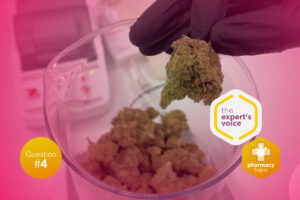Endometriosis is associated with growth of uterus internal tissue outside of it, resulting in pain, infertility and difficult menstruation periods, making women’s everyday a challenging and frustrating experience. Intense pelvic and bowel movement pain together with uncomfortable sexual intercourse intensify the difficulties leading to major disturbances of daily routine. Moreover, patients can also experience diarrhea, migraines or vomiting. The origins of the endometriosis seem to be mainly genetic although poorly investigated, it is causing the preventive actions to be impossible and forcing us to simply deal with it when it comes. In many cases women tend to either ignore some of the symptoms without reporting it to their physician, being unaware of a possibility of endometriosis, being often correctly diagnosed when dealing with infertility later on. Laparoscopy (visualization of uterus with help of camera) being the only safe and sure way to confirm the diagnosis of endometriosis makes it hard to spot early on and is usually performed when troubleshooting heavy symptoms when the disease advances later on. In case of inconclusive laparoscopy due to poor visibility, a biopsy must be performed. Endometriosis usually occurs at the age of 30-40 although many patients report it already in early 20s.
Up to 15% of world’s female population (roughly est. over 500 million) is suffering from endometriosis, making it one of the top ailments targeting the female reproductive system. Existing medical solutions deal frequently poorly with symptoms, leaving surgical lesion removal an only option for improving the endometriosis clinical status. Symptomatic and lesion recurrence forces women to repeat the surgery periodically, being often correlated with planning a child. Overall, the disease not only affects the quality of life but also creates psychological implications – many women with endometriosis are diagnosed with anxiety and depression coming either from chronic pain or infertility issues, influencing their professional life or limiting/disabling their social life.
Medical cannabis is becoming more and more important from gynecological point of view, promoting the use of cannabidiol (CBD) in a variety of female conditions. CBD has strong anti-inflammatory properties and can reverse intense cell proliferation in expanding external uterus cells or even cancerous tissues. In short, CBD eases the chronic pain and shuts down the inflammation, not only preventing the uterus tissue to expand but removing existing lesions. CBD calms anxiety and helps with depression – a purpose already discovered by ancient civilizations from which modern society has still much to learn about the proper medical use of cannabis.
Interesting fact: Endometriosis is sometimes misdiagnosed as an irritable bowel syndrome or fibromyalgia. Increasing number of scientific reports also show promising treatments with CBD for both of these conditions, indicating correlation among them and throwing these ailments in one basket of CBD-based therapy candidates. Along with many other opening gynecological benefits from medical cannabis use, there is a strong light of hope for all endometriosis patients. However, majority of them are unaware of scientific breakthroughs or misinformed about therapies, making the society’s awareness about existing possibilities a primary goal. Not only patients should be aware of the possibilities, but also physicians who are the main responsible.





